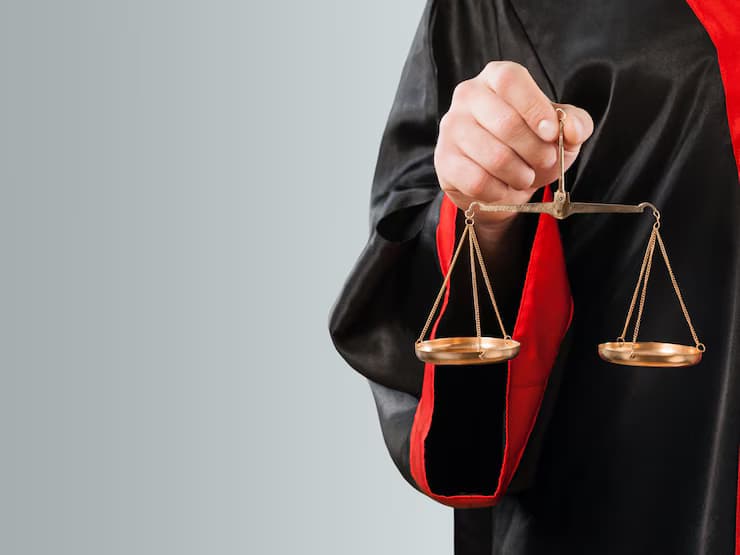Common Defenses Used by Domestic Violence Attorneys

Strong 8k brings an ultra-HD IPTV experience to your living room and your pocket.
Domestic violence charges carry serious legal, personal, and professional consequences. Accusations of this nature often arise in emotionally charged situations, making the defense process delicate and complex. A domestic violence attorney plays a critical role in evaluating the facts, protecting the rights of the accused, and navigating the legal system with precision.
Understanding the strategies employed by experienced attorneys can shed light on how such cases are approached. Below are some of the most common defenses used by legalprofessionals when handling domestic violence cases.
1. False Allegations
One of the most frequent defenses in domestic violence cases is that the accusations are entirely false. These situations often emerge during contentious divorce proceedings, custody battles, or personal vendettas.
How Attorneys Use This Defense:
Investigate the accuser’s motives.
Gather digital evidence like texts, emails, or recorded conversations.
Call into question the credibility of the alleged victim.
When well-supported, this defense can significantly weaken the prosecution's case.
2. Self-Defense
Self-defense is a legitimate claim when the accused acted to protect themselves from harm. In some domestic disputes, both parties may sustain injuries, making it harder to determine who was the initial aggressor.
Key Aspects:
The use of force was necessary and proportional.
The accused had a reasonable fear of imminent harm.
Evidence supports the need for defensive action.
A domestic violence attorney may introduce witness statements, injury photos, or prior threats to substantiate the claim.
3. Lack of Evidence
Domestic violence cases often hinge on testimony without physical evidence or third-party witnesses. A strategic defense can highlight inconsistencies or missing links in the prosecution's argument.
Legal Strategy Includes:
Challenging police reports and medical documentation.
Highlighting discrepancies in the victim’s story.
Emphasizing the presumption of innocence.
Without solid proof, the prosecution may struggle to meet the burden of guilt beyond a reasonable doubt.
4. Accidental Injury
Sometimes, injuries occur by accident during a dispute. An attorney may argue that the injury wasn’t intentional or that there was no intent to cause harm.
Example Defense Scenarios:
The accuser tripped during an argument.
A defensive action unintentionally caused injury.
This defense hinges on showing that the actions were not aggressive or willful but rather unfortunate incidents in the heat of the moment.
5. Alibi
If the accused was not present at the time of the alleged incident, establishing an alibi becomes a powerful defense.
Supporting Evidence May Include:
GPS records or phone data.
Surveillance footage.
Testimonies from witnesses placing the accused elsewhere.
This approach shifts the focus entirely to disproving the accused's presence at the scene.
6. Consent or Mutual Combat
In rare situations, both parties may have willingly engaged in physical altercation. Though not common, attorneys might argue that the alleged victim consented to certain physical interactions.
Legal Implication:
The defense doesn’t excuse violence but may mitigate charges.
The court may consider reduced penalties in mutual combat cases.
This defense is often controversial and needs to be handled delicately.
7. Violation of Constitutional Rights
If law enforcement failed to follow due process, such as conducting an unlawful search or failing to read Miranda rights, evidence might be suppressed.
Examples of Violations:
Coerced confessions.
Arrests without proper warrants.
Denial of legal representation.
A domestic violence attorney will scrutinize the legal process to uncover these flaws, which can potentially lead to case dismissal.
8. Mental Health or Incapacity
Attorneys may introduce psychological evaluations to show the accused lacked the mental capacity to understand or control their behavior during the incident.
Considerations:
Diagnosed mental illness.
Lack of intent or impulse control.
History of medical treatment or psychiatric care.
Though not a full defense, it may reduce charges or lead to mandatory treatment instead of jail time.
9. Misidentification
In certain situations, the accused may have been wrongly identified as the perpetrator. This could happen due to chaotic scenes, witness confusion, or misleading evidence.
Defense Strategy:
Presenting alternative suspects.
Highlighting flaws in identification.
Using forensic evidence to clear the accused.
This is especially useful in cases involving multiple parties or third-party intervention.
10. Recantation by the Accuser
Sometimes the alleged victim later retracts their statement. While prosecutors may still pursue charges, a recantation can weaken the case considerably.
What Attorneys Do:
Demonstrate inconsistencies in testimonies.
Show lack of cooperation from the accuser.
Highlight motives behind the retraction.
This defense is often used in combination with other evidence-based arguments.
Conclusion
Facing domestic violence attorney are allegations can be overwhelming and life-altering. However, a skilled domestic violence attorney can use a range of legal defenses to challenge the prosecution’s case. From proving false allegations to highlighting constitutional violations, these strategies are tailored to protect the accused’s rights and freedom.
For those seeking strong legal representation, Blankenship Law, LLC offers trusted and strategic advocacy in domestic violence cases. If you or someone you know is navigating such a legal challenge, now is the time to seek experienced guidance. Take the first step toward protecting your future—contact Blankenship Law, LLC today.
Note: IndiBlogHub features both user-submitted and editorial content. We do not verify third-party contributions. Read our Disclaimer and Privacy Policyfor details.


